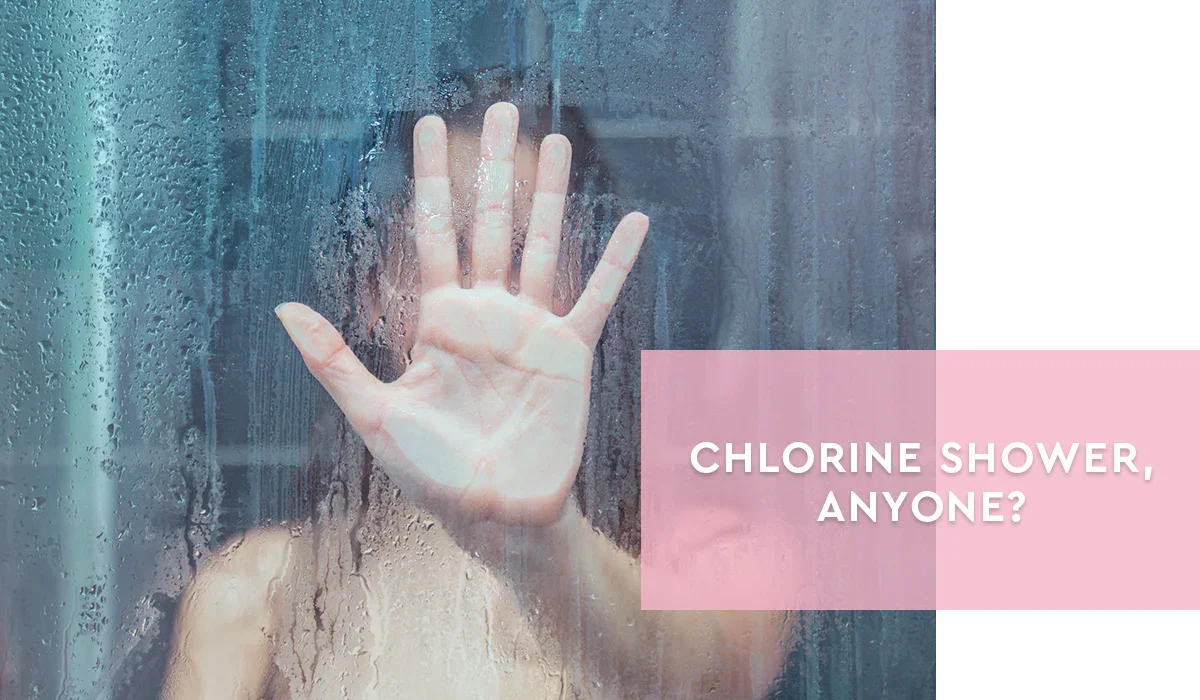Your Shower Water May Be Sabotaging Your Skin & Hair (And What to Do About It)
When we think of going nontoxic in our homes, we often focus on our food, air, and skincare products—but rarely on shower water.
Yet the water you’re bathing in every day may carry hidden irritants that affect your skin, hair, and even your mood and health. Let’s dive into why shower-water quality matters, what it can impact, and how investing in a filter can be a small change with big benefits!
What’s in Your Shower Water — The Hidden Contaminants
Municipal tap water is disinfected, yes—but that means chlorine (and sometimes chloramines) and other additives are present. On top of that, depending on your plumbing and local water source, you may also be exposed to:
hard-water minerals (calcium, magnesium, etc) which deposit on skin and hair.
heavy metals, rust, sediments or trace contaminants from older pipes.
chlorine and chloramines which strip oils from skin & hair and irritate.
When you shower, you're not only rinsing with that water—you’re allowing it to hit your skin, your scalp, and you’re also inhaling the vapour from hot water (chlorine in the steam, for example) which can affect respiratory & systemic health. Skin is also absorbent, meaning that things your skin comes in contact with can absorb into your skin and bloodstream.
Rusty pipes
How Poor Shower Water Can Affect Skin, Hair & Health
Skin
Chlorine + hard minerals can strip the skin’s natural oils, leaving it dry, irritated, itchy or inflamed.
Build-up of minerals or residue may clog pores, aggravate skin conditions like eczema, rosacea or acne.
Dryness, flaking or lowered barrier function—your skin may feel tight or become more sensitive.
Hair & Scalp
Hard water minerals cling to hair shafts → cuticle damage, rough texture, increased frizz, breakage.
Chlorine & chemicals can irritate scalp, disrupt natural oils → dandruff, itch, poor hair growth.
Other Health Effects
Because hot water makes vapours, chlorine and other by-products may be inhaled—potentially affecting respiratory health or causing headaches, or migraines, in sensitive individuals.
When your skin barrier is compromised or you’re continuously exposed to irritants, your nervous system may respond with chronic low-level stress or inflammation—which can impact mood, sleep and overall vitality.
While filtration isn’t a cure-all, many dermatologists and water-quality experts say it can reduce chemical load on the body and support better skin/hair health long-term.
What a Shower Filter Actually Does
A good shower filter works by reducing or removing unwanted substances from your water, so the water coming out of your showerhead is kinder to your skin, hair and body.
Depending on the model, it may:
Reduce chlorine and chloramines.
Reduce heavy metals, rust, sediment.
Reduce scale or mineral build-up from hard water.
Improve pH or reduce irritating residues that alter how your skin/hair react.
How to Choose & Use a Shower Filter
Installation & Maintenance:
Most filter attachments screw in between shower arm and existing head—often tool-free or minimal.
Replace the filter cartridge as recommended (often every 3-6 months) so it continues working effectively.
Ensure the model you choose has verified performance in removing chlorine/heavy metals—look for third-party testing if possible.
Match to Your Needs:
If you have sensitive skin or scalp issues (eczema, rosacea, chronic itch) → target a filter known for strong chlorine/heavy metal removal.
If you live in a hard water area (high mineral content, visible scale) → choose one that specifically addresses minerals/scale in addition to chlorine.
Consider water pressure: some filters reduce water pressure if poorly designed—choose one with good reviews.
My Recommendation: A Simple, High-Value Filter
If you're ready to take that step, The Jolie Shower Filter is a great choice: designed to reduce chlorine and impurities while maintaining water pressure, and built for easy install. It’s a solid pick for skin/hair health and overall wellness. Jolie is often considered the "best overall" due to its dual-stage filtration, clinical proof for hair shedding reduction, and beautiful, aesthetic design. You can find the product HERE
Shiny hair after using the Jolie Shower filter
Your shower is one of the places where self-care meets everyday routine. While it may feel like a small adjustment, switching to filtered shower water is a simple, foundational upgrade for your skin, hair, and overall wellness.
References
“5 Ways a Shower Filter for Chlorine Can Improve Your Hair and Skin.” ConsciousWater. Conscious Water
“The Importance of a Shower Filter for Hair & Scalp Health.” Natural Image Skin Center. Natural Image Skin Center
“Filtered Showerheads Claim to Improve Skin and Hair Health — But Do You Really Need One?” Health.com. Health
“Everything You Need to Know About Shower Head Filters.” RealSimple. Real Simple
“The Complete Guide to Shower-Head Filters: Benefits, Types, and Effectiveness.” TheWaterProfessor. The Water Professor
“Benefits of Shower Filters for Hair Health.” Dracoss Tech. Dracoss



